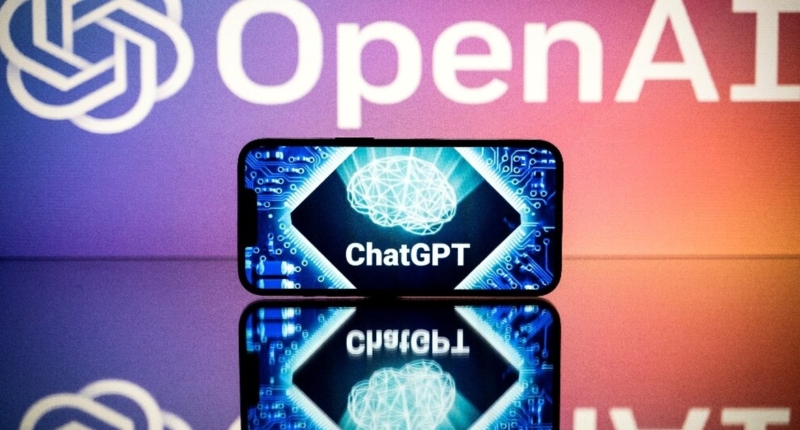Artificial intelligence (AI) has the potential to revolutionize the way we work and live. The rise of artificial general intelligence (AGI) could be the most significant paradigm shift in human history, according to experts. AGI is defined as AI with human cognitive abilities, and it could free people from menial tasks and usher in a new era of creativity. However, it also poses significant challenges, particularly concerning job losses and the impact on creativity and education. The use of ubiquitous AI also raises questions about creative authenticity. The international order could be at stake if one country figures out AGI faster than others, leading to domination in the AI race. OpenAI plans to build AGI gradually with the aim of benefiting humanity, but the software has safety flaws that need to be addressed. The power is concentrated around those who can build this technology, and they make the decisions around it. It is essential to ensure that safety measures are in place to prevent the technology from becoming uncontrollable.

The Impending Paradigm Shift: AGI as a “Double-Edged Sword”
Experts in Silicon Valley predict that the inevitable rise of artificial general intelligence (AGI) will bring change that is “orders of magnitude” greater than anything the world has yet seen. AGI, defined as artificial intelligence with human cognitive abilities, as opposed to narrow AI such as chatbots, could bring forth a new era of creativity by freeing people from menial tasks. But it could also pose a threat to jobs and raise insurmountable social issues, according to experts.
The release of ChatGPT last year brought the long dreamt of idea of AGI one giant leap closer to reality. The generative software, developed by OpenAI, produces essays, poems, and computing code on command. This week, OpenAI released an even more powerful version of the tech called GPT-4, which it says will be able to process text, images, and produce more complex content such as legal complaints or video games. The company claims that GPT-4 exhibits human-level performance on some benchmarks.
The success of OpenAI, backed by Microsoft, has ignited an arms race of sorts in Silicon Valley as tech giants seek to push their generative AI tools to the next level. Microsoft and Google already have AI-infused digital assistants that can summarize meetings, draft emails, create websites, craft ad campaigns, and more, giving us a glimpse of what AGI will be capable of in the future.
Siqi Chen, CEO of San Francisco startup Runway, stated that previous technological advances such as electricity and the internet ignited powerful social change. However, with the rise of AGI, this change will be “orders of magnitude greater than every other technological change we’ve ever had in history.” Chen envisions using AGI to tackle climate change but also warns that it is a tool that needs to be as “steerable as possible.”
AGI is a “double-edged sword,” according to Chen. The paradigm shift it brings could be both exciting and frightening. It could solve significant global problems, but it could also create social unrest and threaten jobs. Jared Spataro, Microsoft corporate vice president, agrees that people spend too much time consumed by the drudgery of work. AGI could free people from this drudgery, but at the same time, we need to ensure that it remains a tool that is steerable and not uncontrollable.
In conclusion, the rise of AGI will bring a paradigm shift that could be both exciting and daunting. Its potential to solve significant global problems is immense, but we need to be cautious of its impact on jobs and society. AGI is a “double-edged sword,” and we need to ensure that it remains a tool that is steerable and not uncontrollable.
The Rise of Artificial Intelligence and its Impact on Jobs and Society
Artificial intelligence (AI) has the potential to revolutionize the way we work and live. According to Jared Spataro, Microsoft corporate vice president, AI can help “rediscover the soul of work” by reducing the drudgery associated with menial tasks. It can also cut costs significantly, as demonstrated by British landscape architect Joe Perkins who used GPT-4, a generative AI software, for a coding project that was completed in three hours for just $0.11, as opposed to a projected cost of $6,000 and two weeks of work by a “very good” developer.
However, the rise of AI also poses a threat to human jobs. Siqi Chen, CEO of San Francisco startup Runway, acknowledges that AI technology could one day build a startup like his or even a better version, raising the question of how people will make a living and avoid homelessness. Chen is hopeful that solutions will emerge to address these concerns.
The use of ubiquitous AI also raises questions about creative authenticity. With songs, images, art, and more being produced by software instead of humans, it is unclear how this will impact creativity and education. Additionally, it is unclear who can be trusted to ensure that AI remains unbiased, accurate, and adaptable to different cultures and countries.
The rise of artificial general intelligence (AGI) could be the most significant paradigm shift in human history, according to experts. Sharon Zhou, co-founder of a generative AI company, suggests that AGI is coming at us faster than we can process. The existential question for humanity, Zhou told AFP, is what happens when there is something more powerful and intelligent than humans? Will we harness it, or will it harness us?
OpenAI plans to build AGI gradually with the aim of benefiting humanity, but the software has safety flaws that need to be addressed. OpenAI’s chief scientist Ilya Sutskever acknowledges that safety is a “process,” and it is highly desirable for companies to come up with a process that allows for slower releases of models with unprecedented capabilities.
However, according to Zhou, slowing down is not part of the ethos. The power is concentrated around those who can build this technology, and they make the decisions around it. The international order could be at stake if one country figures out AGI faster than others, leading to domination in the AI race.
In conclusion, the rise of AI has the potential to transform our lives positively. However, it also poses significant challenges, particularly concerning job losses and the impact on creativity and education. As the race for AGI continues, it is essential to ensure that safety measures are in place to prevent the technology from becoming uncontrollable. We need to harness AI to benefit humanity rather than letting it harness us.
Don’t miss interesting posts on Famousbio









